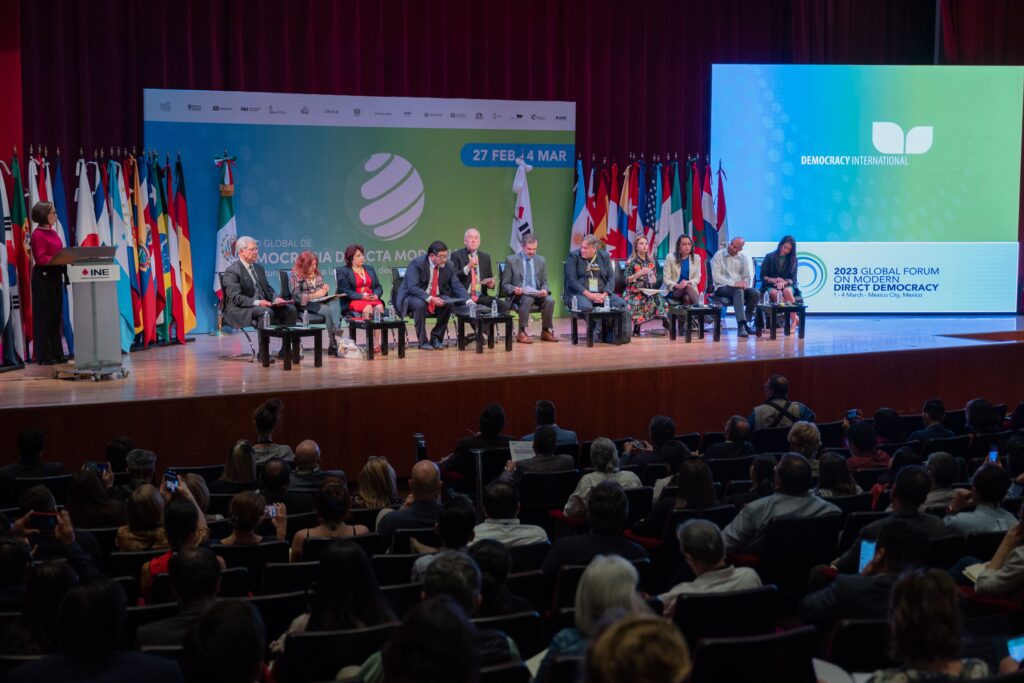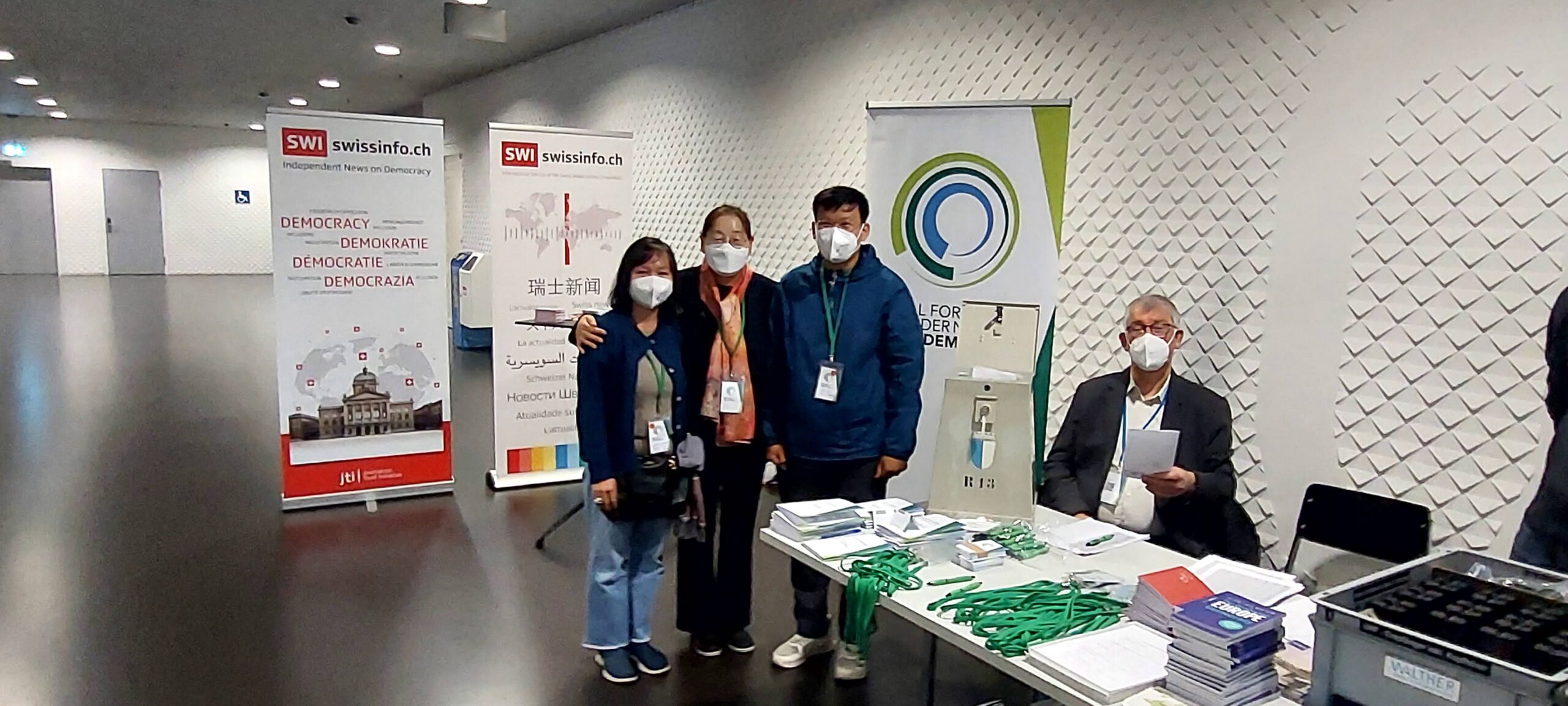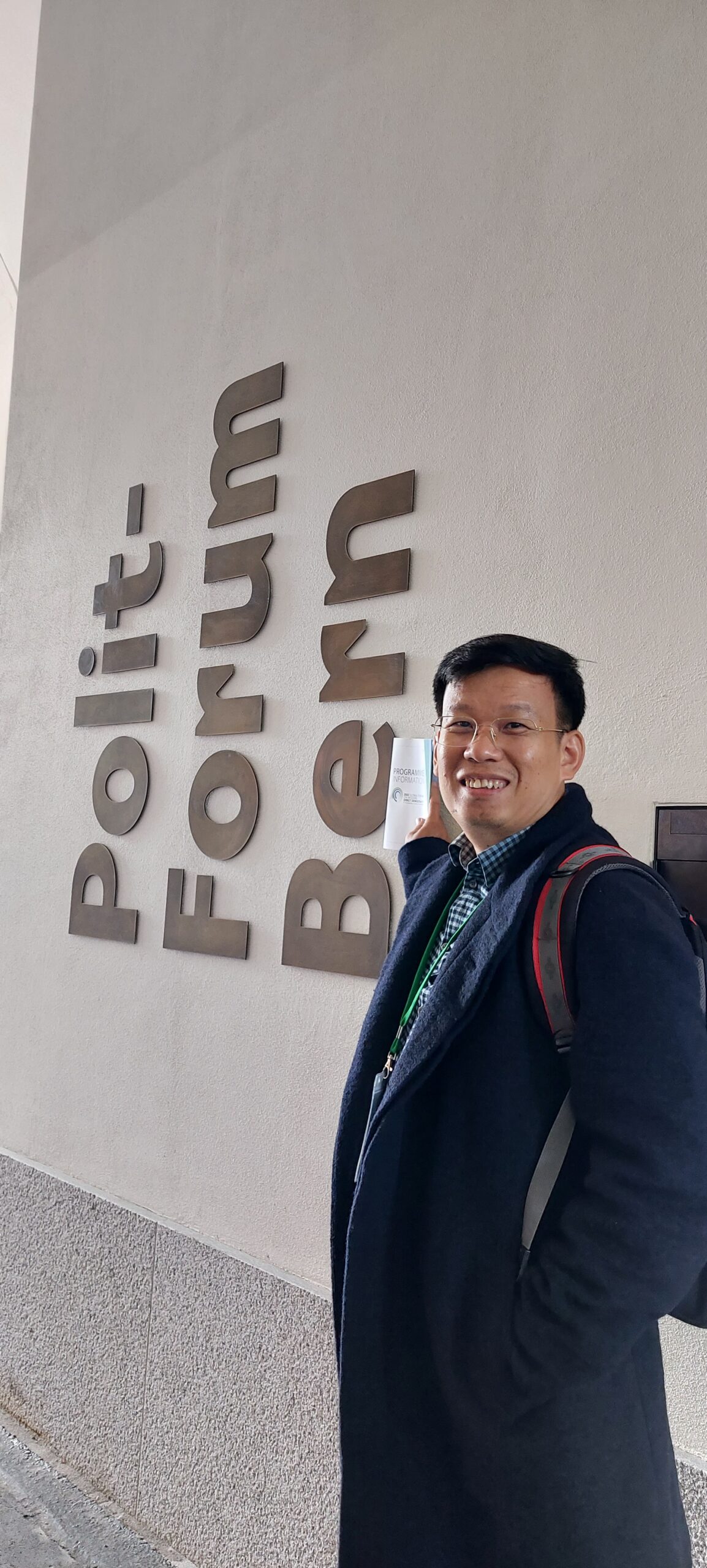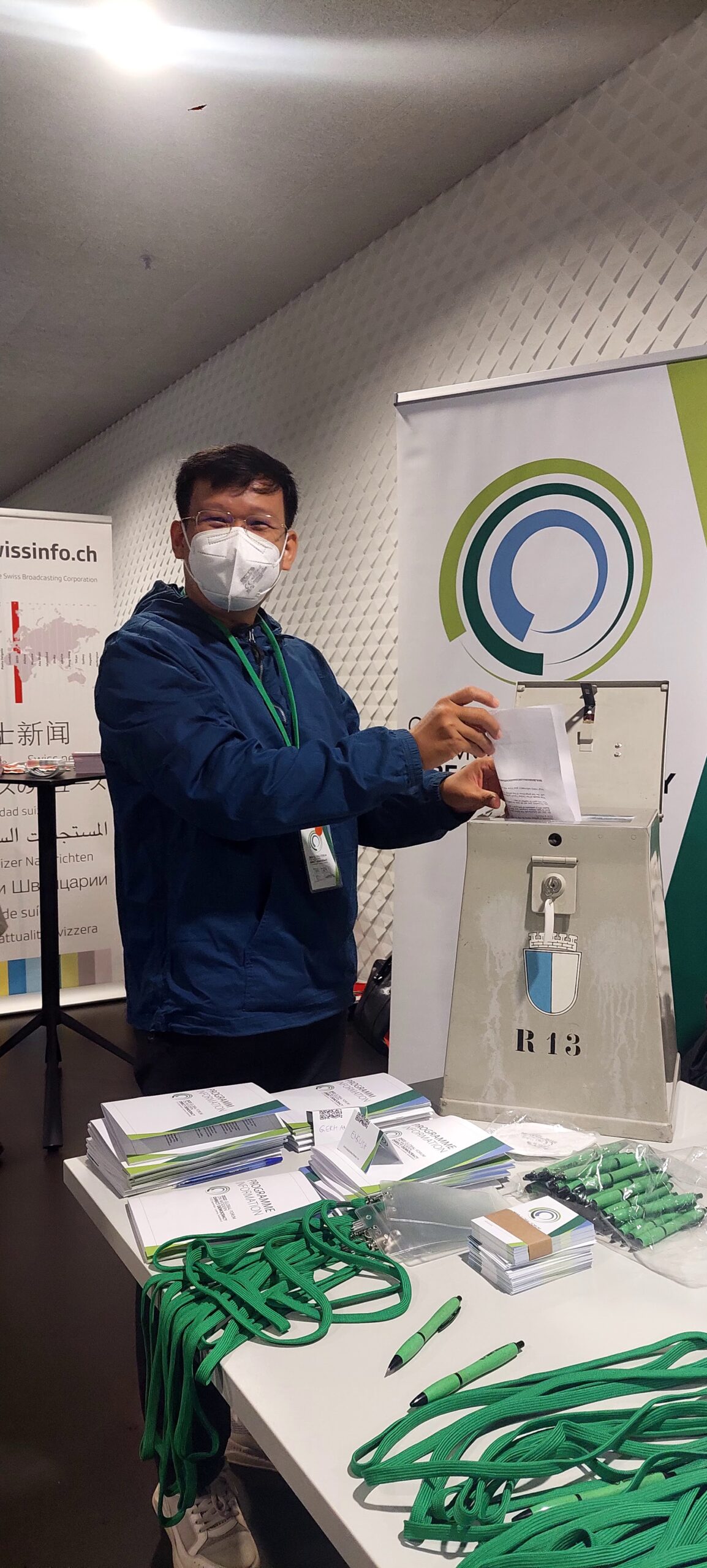Global Forum on Modern Direct Democracy: Democracy in Switzerland and the use of technology to improve citizen participation

2023 Global Forum on Modern Direct Democracy. Photo by Ricardo Rivera, taken on 05 April 2023. Licensed under CC BY-SA 2.0.
Open Development Cambodia’s team attended the 2022 Global Forum on Modern Direct Democracy in Lucerne, Switzerland. The Forum is world’s largest gathering devoted to participatory and direct democracy, and was held from September 21 through 25 in Lucerne, Switzerland. The conference was hosted by the Swiss Democracy Foundation in cooperation with Democracy International and the City of Lucerne. The Global Forum is an annual conference that brings scholars, practitioners, and activists worldwide to discuss and exchange ideas about direct democracy. The forum focuses on citizen participation, digital democracy, and democratic innovations.
The 2022 forum’s theme was “Direct Democracy in a Post-Pandemic World.” The programme aimed to explore how direct democracy can contribute to building more resilient and participatory societies after the COVID-19 pandemic. The forum featured keynote speeches, panel discussions, and workshops on various topics related to democratic practices. Key speakers included political scientists, activists, and policymakers from around the world. ODC’s team participated in the group discussion at the forum, and especially learned about youth participation in the Swiss voting system. The forum also provided opportunities for networking and collaboration among participants.

2022 Global Forum on Modern Direct Democracy. Photo by Democracy International, taken on 04 October 2022. Licensed under CC BY-SA 2.0.
The ODC team participated in dialogues and also attended the parliamentary tour in Bern, Switzerland to learn more about the parliamentary system. Switzerland is widely regarded as a model of direct democracy, where citizens have a significant say in policymaking through referendums and initiatives. The country has a federal system of government, with power shared between the central government and the cantons (states). The federal government is composed of two chambers: The National Council (lower house) and the Council of States (upper house). Members of both chambers are elected by popular vote, with elections held every four years.
One of the key features of Swiss democracy is the use of referendums and initiatives to involve citizens in decision-making. A referendum is a vote on a specific policy proposal, while an initiative is a proposal put forward by citizens themselves. To trigger a referendum or initiative, citizens must gather a certain number of signatures on a petition. Once triggered, referendums and initiatives are put to a vote among all eligible citizens.
The COVID-19 pandemic tested Switzerland’s democratic system in many ways. The federal government has took a decentralized approach, allowing cantons to implement their own measures to contain the virus. This led to some confusion and inconsistency across different regions. However, the government has also been transparent about its decision-making process, regularly communicating with citizens through press conferences and other channels.
Technology has played an increasingly important role in Swiss democracy in recent years. For example, the e-voting system allows citizens to cast their votes online, making it easier for people who live abroad or have mobility issues to participate in elections. There are also various online platforms that allow citizens to submit initiatives or participate in public consultations on policy proposals.
Switzerland’s direct democracy system is unique and has been successful in ensuring citizen participation in policymaking. The use of technology has further improved the accessibility and convenience of democratic processes. However, there are still challenges to be addressed, particularly in ensuring consistency and coordination across different levels of government.
The Global Forum on Modern Direct Democracy was significant for those interested in direct democracy and democratic innovations. It provided a platform for sharing knowledge and experiences and exploring new ideas for promoting citizen participation in decision-making processes. The ODC team hope that they will have opportunity to join again and present ODC projects at the next forum.




